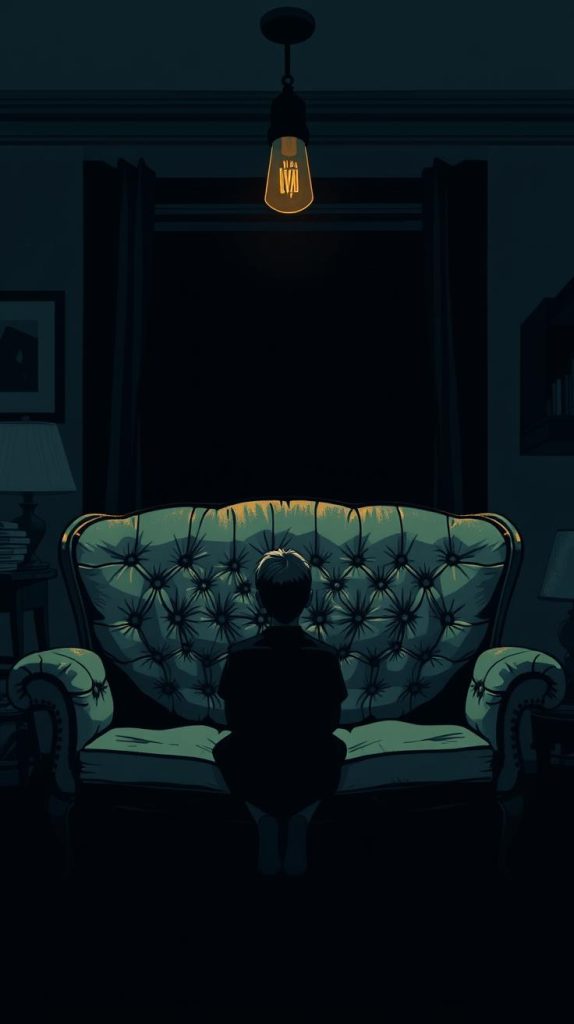WIBTA if I report my therapist for essentially calling me a misogynist?
 Image credit: Pixabay (This is example image – Not the actual photo)
Image credit: Pixabay (This is example image – Not the actual photo)
Therapy Misunderstandings: A Young Man’s Struggle
In a poignant exploration of mental health, a young man navigates the complexities of therapy within the UK’s public mental health service, CAMHS. Assigned a therapist who misinterprets his feelings towards his mother and the trauma he endured, he grapples with whether to voice his concerns or simply request a new therapist. This story resonates with many in the US, where mental health services can be equally challenging to navigate, highlighting the importance of understanding and empathy in therapeutic relationships. As he weighs his options, readers are left to ponder the delicate balance between seeking help and advocating for oneself.
Family Drama and Conflict Resolution in Therapy
In the UK, young people have access to a public mental health service known as CAMHS, where therapists are assigned rather than chosen. This story revolves around a young male client navigating family dynamics and therapy challenges.
- The client had previously experienced private therapy but had to stop due to costs.
- He expressed a preference for male therapists, which was communicated to CAMHS by his mother.
- During the first session, the therapist questioned his comfort level with women, which he found unnecessary.
In the second session, the discussion shifted to family relationships and past trauma:
- The client shared feelings of love and anger towards his mother, citing past abuse and her role in maintaining contact with abusive individuals.
- He noted a disparity in how people react to his criticisms of his father versus his mother, feeling that his mother is often viewed as a victim.
- The therapist suggested that the client might be misplacing blame on his mother and referenced other male clients with similar feelings.
This suggestion led to confusion and frustration for the client:
- He clarified that his feelings were not directed at women in general but specifically towards those with abusive traits.
- The therapist insisted that discussing perceived discriminatory traits was essential for recovery, which the client found dismissive of his experiences.
After the session, the client sought advice from friends, who were surprised by the therapist’s comments and suggested filing a complaint. The client felt conflicted:
- He questioned whether he was overreacting and if a formal complaint was warranted.
- He discovered that he could request a different therapist, which he considered as a more suitable option.
In his reflections, the client emphasized that his concerns were not about forgiving his mother but about addressing the serious nature of her actions:
- He noted that cultural factors should not excuse her behavior, as she was raised and educated in the UK.
- Ultimately, he decided to pursue a new therapist, believing that stating they did not connect was a reasonable approach.
This situation highlights the complexities of family drama and the importance of effective conflict resolution in therapeutic settings. The client’s experience underscores the need for therapists to approach sensitive topics with care and understanding, particularly when dealing with trauma and familial relationships.
This is Original story from Reddit
 Image credit: Pixabay (This is example image – Not the actual photo)
Image credit: Pixabay (This is example image – Not the actual photo)
Story
To start off, I’m in the UK where we have a public mental health service for young people, CAMHS. You can’t exactly choose your therapist either; you’re just assigned one.
Today was my second session with a therapist from this service. I’ve had private therapy before—I had to stop because it was expensive—where I was able to help pick out a therapist. My request then was for a male therapist; I’m male and find it easier to open up to men versus women in that context.
My mother mentioned this to CAMHS for whatever reason when they asked her for information on me, so I’m guessing it’s on my file. During my first session with this therapist, she mentioned that and asked if I hold any anger towards women or why I can’t tell her things that I would otherwise tell a man. I told her that I don’t really mind either way.
That session otherwise went well. I talked a bit about current things bothering me in my life and dealing with change as I no longer live at home. I was a little shy and didn’t say a lot.
Today, we talked a little more about my past and family relationships. I mentioned that although I love my mother, I’m angry at her. I had some things written down from a post I’ve made before in bullet points, and one of them was that I wish I were allowed to criticize my mother even a little bit.
She’s beaten me in the past, although not a lot. She made me stay in contact with two men who abused me for far too long. Note: in one of the cases, she was living with him, but she has a stable job, made more than him, and could have left.
I mentioned that people tend to take my word when I say that I hate my father, but they tell me to be more grateful when I mention anything slightly critical of my mother or imply that she was more of a victim than me. The therapist suggested that I was wrongly putting the blame of the bad men in my life on my mother and that I could be feeling this because of ‘online content.’
She talked about having other male clients—service users my age—who feel hostile towards women, especially ‘boys from your/my background.’ I’m unsure if she was referring to culture, as she knows that I’m half Pakistani, but I let that pass and told her that I don’t feel hostile towards women in general.
I just don’t like women who happen to have abusive traits, just as I dislike men with abusive traits, and that I’m not a fan of my mother’s behavior. I thought that maybe she misunderstood what I said, but she insisted that talking to a mental health professional about showing certain discriminatory traits is the first step towards getting better or something.
My friends were really surprised and said that I should file a complaint. My concern is that I was overreacting a little. I don’t think that she was in the right at all, but again, a formal complaint seems a little too far.
WIBTA if I do file a complaint? Repost: I just posted on the other sub, but it got taken down before I could see any responses.
Edit: I found out that I apparently can request another therapist, so there’s that. I’m considering just doing that and saying that we didn’t click rather than filing a complaint, but I don’t know.
I can DM my main account name if that’s relevant, but I don’t post incel stuff. Note: my question wasn’t whether or not I should forgive my mother for knowingly encouraging me to be around sexually abusive men or whether or not it was my fault or whether or not it was her obligation to remove me from that situation.
I understand that some cultures or people in other countries don’t take child abuse seriously, but she was born and raised in the UK, was educated, went to university, etc.
Edit 2: I’m going to try to get a new therapist if I’m able to make a request, just saying that we didn’t get along. That firmly feels like the right decision—a middle ground.
Thanks to the people who informed me that filing a complaint isn’t my only option and that I can, in fact, make a request to see someone else.
View the Original Reddit Post Here
Summary of Reddit Comments
The top Reddit comments strongly support the notion that the therapist’s response was inappropriate and harmful, labeling the original poster (OP) as not at fault (NTA). Users emphasize that the therapist dismissed OP’s trauma and instead projected biases, suggesting that filing a complaint is a necessary step to ensure proper support and accountability. Overall, the consensus is that OP deserves a therapist who listens and validates their experiences without jumping to conclusions.
Verdict: NTA
Expert Advice for Resolving the Conflict
Resolving conflicts in therapeutic settings, especially those involving sensitive family dynamics, requires a thoughtful and empathetic approach. Here are practical steps for both the client and the therapist to consider:
For the Client
- Reflect on Your Feelings: Take time to journal or discuss your feelings with trusted friends. Clarifying your emotions can help you articulate your experiences better in future sessions.
- Communicate Your Needs: When seeking a new therapist, clearly express your preferences and past experiences. This can help ensure a better match for your therapeutic needs.
- Consider a Formal Complaint: If you feel comfortable, consider filing a complaint about the previous therapist’s approach. This can help improve the service for future clients and hold the therapist accountable.
- Seek Support: Engage with support groups or online communities where you can share your experiences and gain insights from others who have faced similar challenges.
- Focus on Healing: Remember that therapy is a personal journey. Prioritize finding a therapist who validates your experiences and supports your healing process.
For the Therapist
- Practice Active Listening: Ensure that you are fully listening to your clients’ experiences without projecting your biases. Validate their feelings and provide a safe space for them to express themselves.
- Be Cautious with Assumptions: Avoid making assumptions about a client’s feelings based on their gender or past experiences. Each client’s situation is unique and deserves individual attention.
- Encourage Open Dialogue: Foster an environment where clients feel comfortable discussing their concerns about therapy. This can help build trust and improve the therapeutic relationship.
- Seek Supervision or Consultation: If you find yourself struggling with a client’s case, consider seeking supervision or consulting with colleagues to gain different perspectives and improve your approach.
- Commit to Continuous Learning: Engage in ongoing education about trauma-informed care and cultural sensitivity to better understand and support clients from diverse backgrounds.
By taking these steps, both the client and the therapist can work towards a more constructive and healing therapeutic relationship. Remember, the goal of therapy is to foster understanding, healing, and growth.
Join the Discussion
 Image credit: Pixabay (This is example image – Not the actual photo)
Image credit: Pixabay (This is example image – Not the actual photo)
What do you think? Would you have handled this differently?
Share your thoughts below! Vote: Do you agree with Reddit’s verdict?














